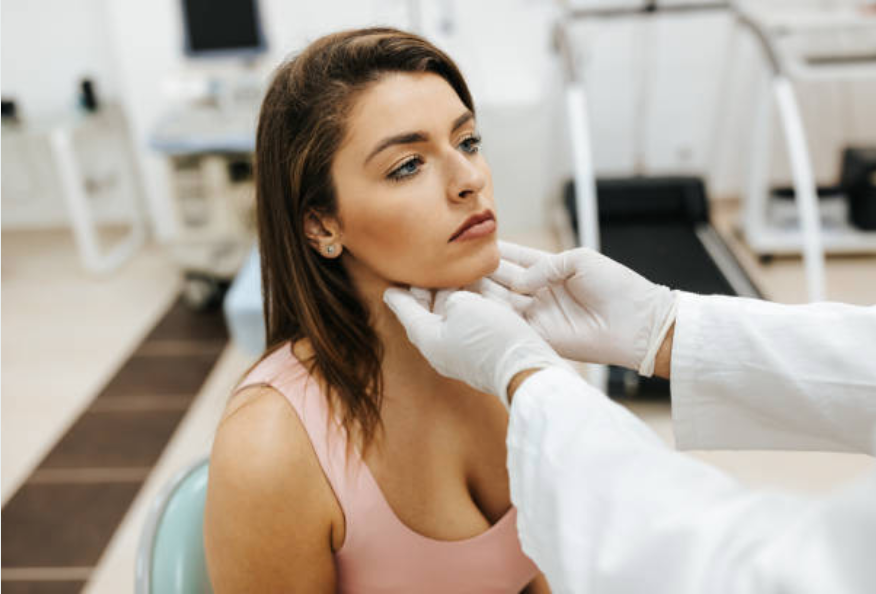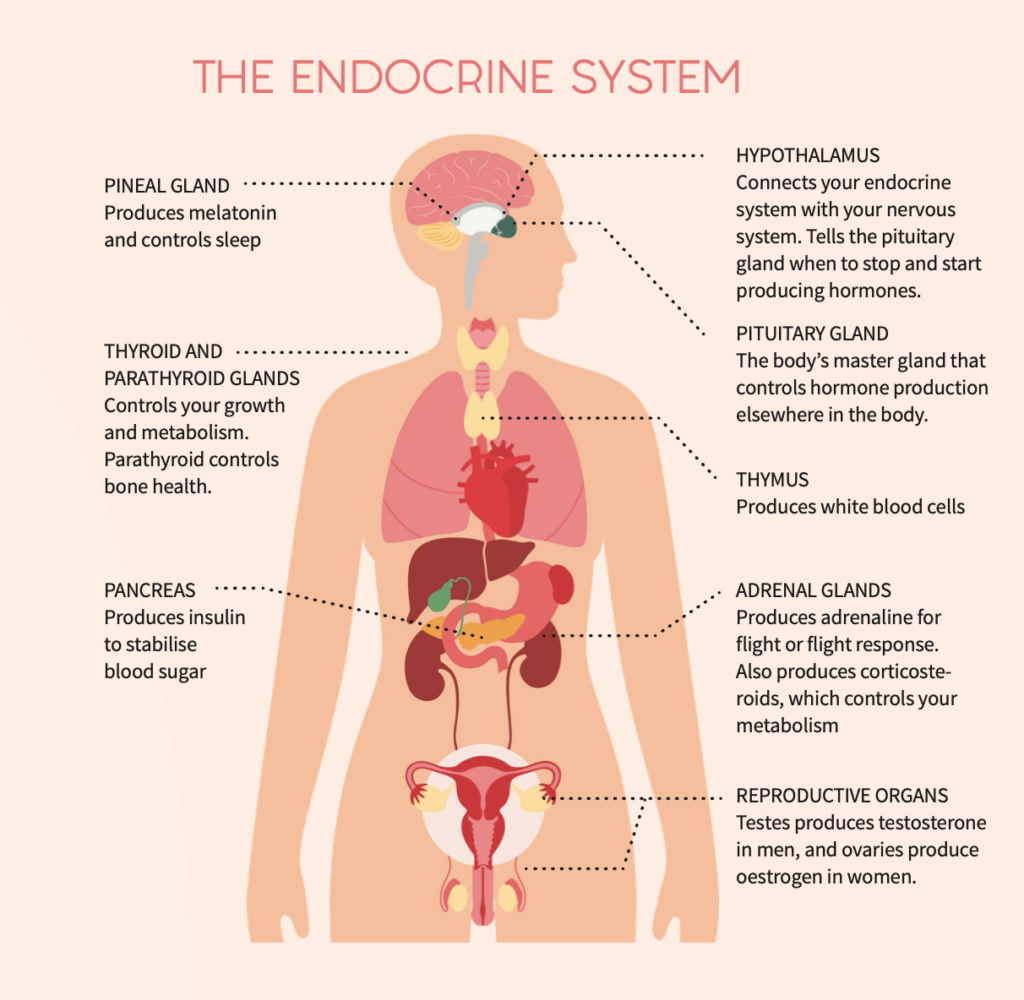
Hormones. Everyone’s got ‘em, but for many of us, we don’t give them the full attention they deserve, nor do we understand the central role that hormonal health plays in our health and wellness.
The truth is, hormones are essential to optimal functioning. Although we tend to attribute things like sex, puberty and menstruation to hormonal activity, these multi-purpose molecules in our bodies are also the catalyst for virtually everything we do in our daily lives, including eating, sleeping, moving, and our overall emotional wellbeing.
A hormonal imbalance can be responsible for a wide spectrum of symptoms, including heart palpitations, depression, hair loss, anxiety, weight gain, memory loss, and more. It can even increase the risk of serious health issues such as heart attack, stroke and osteoporosis.
That’s why understanding our hormonal levels and how they actually work is crucial to living our best, healthiest lives. So let’s dive into the weird, wonderful world of hormones, starting with the basics…
What are hormones?
Hormones are our body’s chemical messengers. They’re produced via the endocrine system, a complex network of glands and organs: the hypothalamus, pituitary, and pineal gland in the brain; the thyroid and parathyroid in the neck; the thymus in the chest; the adrenal glands in the kidneys; and the pancreas and reproductive organs.

Each area produces and secretes specific types of hormones into the circulatory system, in order to control everything from body composition, metabolism, energy levels and growth, to our response to injury and stress. This process is largely kept in check through a feedback loop, meaning that once balance is restored in our bodies, the system should switch off.
Problems occur when our endocrine system either won’t turn on or off correctly, leading to a plethora of confusing signals floating around in our bodies and generally causing mayhem.
How do they affect our wellbeing?
To learn more about the specific ways that hormones affect our day-to-day health, we spoke with functional medicine practitioner Miles Price. He recently opened his own clinic, Peak Metabolism, which specialises in hormonal regulation and metabolic health.

“One of the major hormones your body produces is thyroid hormone T4, or thyroxine, which is converted to the active form T3 (triiodothyronine) in the liver, kidneys, heart and gut,” says Price.
“Nearly every cell in your body is affected by your T3 levels. When you’re deficient, it can have wide-ranging effects, including stubborn weight gain, fatigue, disrupted menstrual cycles, constipation, depression, dry skin, muscle cramps, sensitivity to cold and loss of libido.”
That’s why keeping your thyroid levels in check is so important. What’s more, Price says that the thyroid is particularly sensitive to other hormones produced in the body, such as cortisol, the stress hormone. “Managing your stress levels and circadian rhythms is critical to keeping your thyroid function optimal,” adds Price.
Getting hormones balanced
According to Beth Wright, a Hong Kong-based personal trainer and health coach, having an excess of hormones can be just as problematic.

“Hormones can behave as blockers to the way we want to feel and look, and whilst our body does a wonderful job of regulating itself, sometimes tweaks can be made to help the process along,” she explains.
“It’s a little bit of a ‘Goldilocks’ effect where too much is potentially just as negative as too little. Cortisol is a good example of this – we’re not trying to eliminate it entirely, we want just the right amount.”
A lawyer by day, Wright’s journey into hormonal health began when she struggled with her own 20-pound gain and insomnia, something she attributes to high stress levels. She gradually started to learn about the interplay between hormones with nutrition, sleep, stress and weight, especially in women, whose hormonal levels tend to fluctuate more than men’s.
“I realised that the women I was working with, especially those around a certain age, found it harder to lose weight, feel better and improve things like blood pressure or cholesterol,” says Wright. “I would often hear ‘I am doing everything I did before but it is no longer working’.”
Hormones in women

One reason why women in particular may struggle is due to the expression of different sex hormones. Unsurprisingly to anyone who’s struggled with PMS, women’s sex hormones like oestrogen and progesterone fluctuate wildly during the menstrual cycle. According to Price, women’s sex hormones are also more sensitively influenced by lifestyle.
“Oestrogen and progesterone levels are affected by factors like diet and nutrient intake, and they can directly affect the production of those hormones. From that perspective, women need to take more care with their lifestyle choices compared to men.”
There’s also the huge hormonal shifts that women face during life events like pregnancy, breastfeeding, perimenopause and menopause. Wright says that she started to think more about how to support women struggling with menopause, particularly after she noticed how the topic was trending outside of Asia.
“I actually really don’t like the term ‘menopause’ as it sounds so final,” she laughs. “I prefer ‘long-term female hormone deficiency’, which I find more powerful. It’s factual – and something we can work with, adjust and support.”
To help women optimise their hormone health, Wright even co-created a dedicated menopause programme, including nutrition plans to avoid unwanted weight gain and maintain energy levels; exercises to build bone density and muscle mass; and strategies to improve sleep.
“Compared to the US and Europe, where menopause is getting a lot attention right now, I find that Asia is sadly still far behind. We need to get serious about sharing the information, advice and support that women need to manage their hormonal health, because there’s no reason for anyone to suffer.”
Happy hormones, happy life
So what can we do to keep our hormones in check? The good news is that for most people, it’s not terribly complicated to correct and restore imbalances.
“For many of my patients, lifestyle changes and specific supplemental interventions are all they need, which can include vitamins D3, B-complex, magnesium, fish oils, and increased fibre,” says Price.
Maintaining a healthy weight, engaging in regular exercise, managing stress – these are the building blocks of a healthy hormonal profile. It’s not rocket science, but according to Price, that doesn’t make it any easier – especially in a city like Hong Kong.

“The typical fast-paced, Hongkonger lifestyle of staying up late, drinking too much alcohol and coffee, and relying on take-away food can wreak havoc on the expression of some hormones.”
Both Price and Wright say that the first step to assess whether a hormonal imbalance is present is a consultation, where clients give a detailed history, including onset of symptoms and lifestyle habits. In some cases, a complete diagnostic work-up of hormone expression is useful, in order to better understand someone’s insulin, cortisol, thyroid and sex hormone levels – all of which can subtly influence each other. It may take some time, but Wright insists that knowledge is power when it comes to hormonal health.
“It is really enlightening to establish the ‘why’ behind certain issues including weight gain, libido, poor sleep, low energy, and so on. When we better understand what’s happening inside of us, we’re better able to get past our previous blocks to reach our desired goals.”
When to get your hormones checked
The signs and symptoms of a hormone imbalance are varied and can be attributed to many other causes, but if you’re regularly experiencing these symptoms and lifestyle changes aren’t helping to alleviate them, you may want to consult a medical professional specialising in hormones.
- Tiredness and brain fog
- Irregular or atypical periods
- Gastrointestinal problems leading up to periods
- Heart palpitations and mood swings
- Bloating and weight gain
- Chronic acne, especially along the jawline
- Headaches, mood swings and anxiety
- Lower libido and vaginal dryness
- Insomnia
Also on Liv: 20 Reasons To Still Love Hong Kong (In Spite of Everything…)






